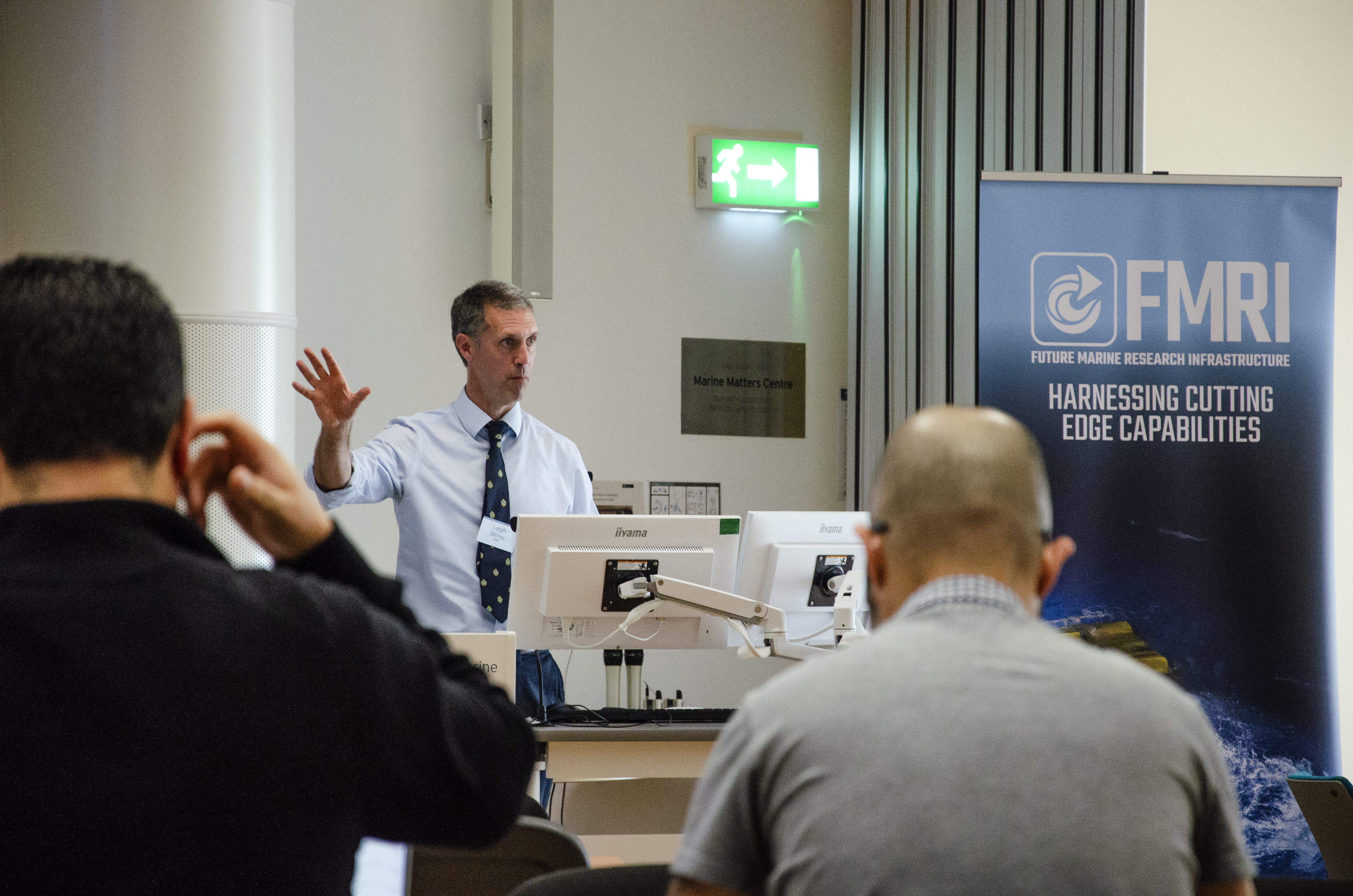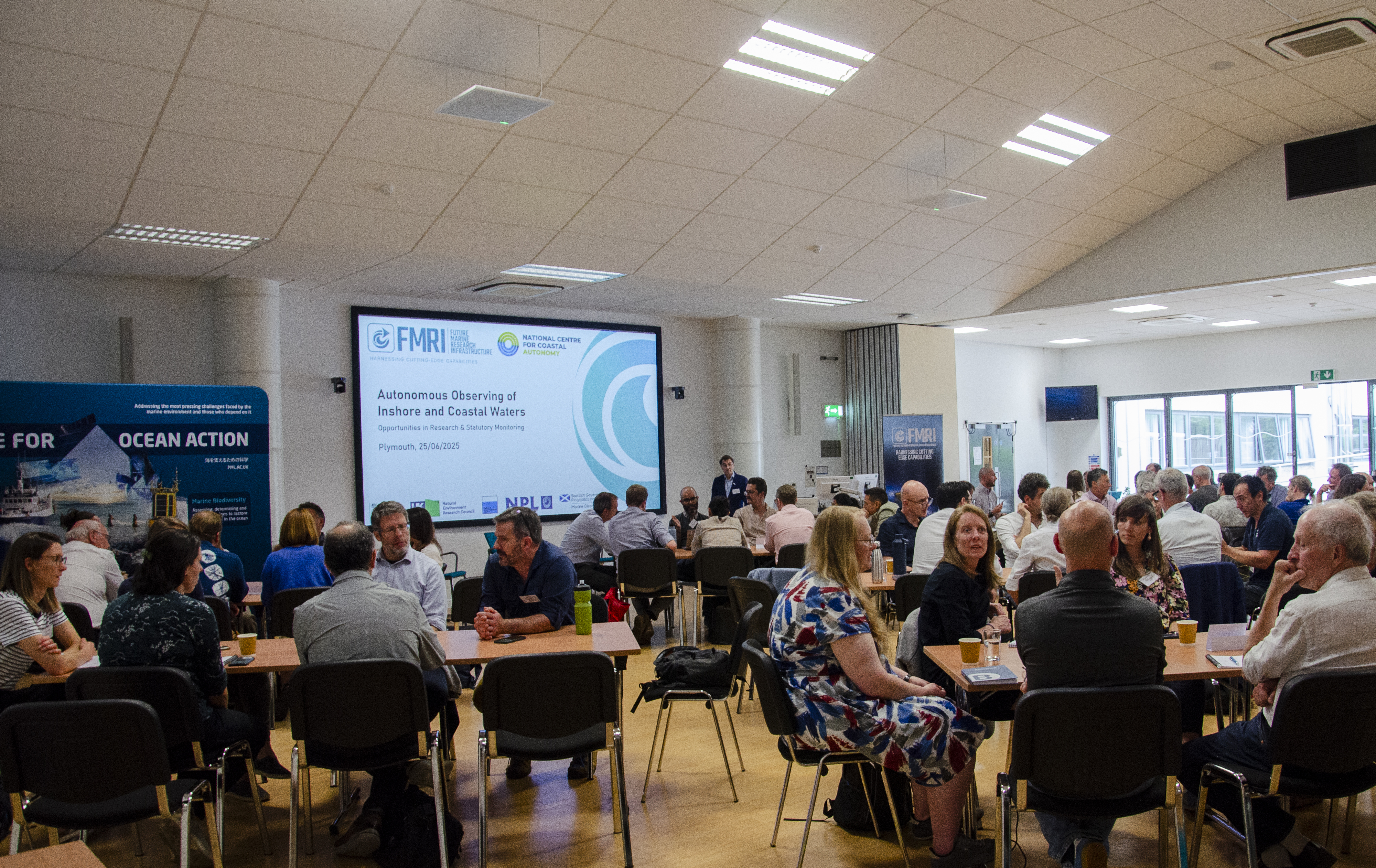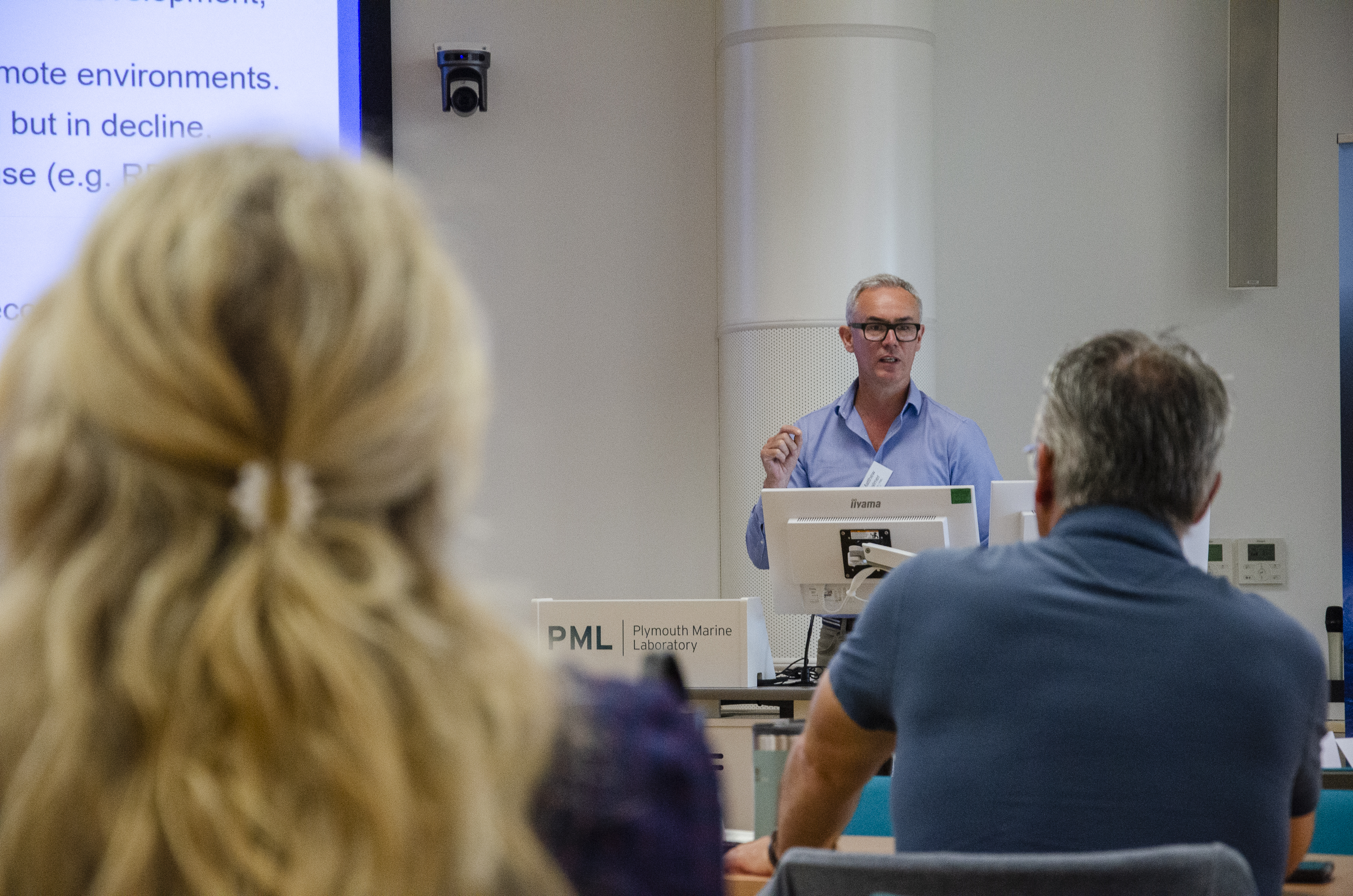On Wednesday 25 June, FMRI united science, policy, and industry to help shape the future of coastal and inshore marine monitoring. Hosted by the National Centre for Coastal Autonomy (NCCA), a two-day workshop gathered 75 experts at Plymouth Marine Laboratory to explore how autonomous technologies can be used to address complex challenges facing the UK’s most critical marine environments.
Download the Coastal Autonomy Workshop Findings and Roadmap.

The power of bringing people together
With autonomous technologies maturing and becoming cheaper to access, new opportunities are emerging to monitor coastal and inshore waters more effectively. This workshop showcased the power of bringing together cross-sector stakeholders to map these opportunities and tackle the challenges ahead. Key discussion highlights included future technology development and the scope, scale and pace of future investment in these capabilities to support UK priorities for economic growth, responsible innovation, and environmental sustainability.
Transforming coastal stewardship through marine autonomy
Inshore, coastal, and shelf sea regions are the heart of ocean ecosystems – critical nurseries for marine life, natural carbon sinks, and key drivers of the Blue Economy, supporting communities, industries, and cultural heritage.
As these regions face growing pressures, the need for smarter, more sustainable and more integrated observing systems has never been greater. Marine autonomy holds great potential to transform how we monitor and manage these vital waters. However, unlocking that potential also requires ensuring we have the trust, assurance, and operational readiness needed to meet both regulatory obligations and the broader challenges of ocean science.
Dr Iain Williams, Director of Strategic Partnerships at NERC, outlined the significance of developing marine autonomy in line with UK government priorities:
“Marine autonomy contributes to NERC’s Forward Look by enabling transformative monitoring of the UK's dynamic coastal and inshore waters. By integrating autonomous technologies with existing research platforms, we can enhance our understanding of these vital zones, supporting the UK's goals for green growth, responsible innovation, and environmental sustainability. This approach not only advances scientific knowledge but also fosters resilient ecosystems and thriving coastal communities.”

Laying the groundwork for a UK coastal autonomy roadmap
Keynote speeches also highlighted the technological, commercial, and regulatory opportunities of marine autonomy, sparking in-depth discussions on platform innovation, expertise, and skills during focused breakout sessions. These insights informed the co-development of a UK coastal autonomy roadmap – an action plan that aims to align research community priorities for cutting edge capabilities, digital tools, and aligned investment. Published later this summer, this plan will also inform FMRI’s business case for future large-scale investment in UK marine research infrastructure.
Opening the workshop, Co-Director of the NCCA, Professor Matthew Palmer, said:

“We’re entering a new era where a transition to more effective and sustainable approaches to measuring and understanding our seas is no longer an option – but an essential requirement. Bringing together perspectives, expertise and experience from across science, policy and industry, this workshop provides a springboard for smarter, more responsive observing networks around our coasts."
Leigh Storey, FMRI’s Senior Responsible Owner, opened stakeholder discussions on day two of the workshop to guide the development of the coastal autonomy roadmap. He noted that:
"Much of the blue economy, including offshore renewable energy, marine and coastal tourism, and fishing and aquaculture, is located in inshore and coastal regions. Yet the more remote regions of the ocean could have the biggest impact upon those inshore and coastal regions over the coming decades, the rapidly warming polar regions will accelerate sea level rise and changes to the major ocean currents will dramatically impact our climate and weather. Making the right decisions on emerging interests in deep sea mining or marine carbon dioxide removal will depend upon us improving our understanding of the links between all three areas."
Enabling a sustainable future through coastal autonomy
By starting to build a shared, system-level view of how to integrate the necessary technologies, comply with appropriate regulatory processes, and offer the growing workforce an exciting and rewarding future, this workshop demonstrated that autonomy can equip society with the tools to steward resilient, prosperous coastal futures. As a global leader in marine science, the UK - through FMRI - is committed to generating the evidence and innovation needed to ensure these developments are sustainable, science-led, and supported by world-class marine capabilities.
Special thanks to keynote speakers
- Professor Matthew Palmer, Head of the Environmental Intelligence Group at PML and Co-Director, NCCA
- Dr Iain Williams, Director of Strategic Partnerships, NERC
- Prof Mark Inall, Chief Scientific Advisor to Scottish Government Marine Directorate
- Jonathan Walker, Innovation Lead – Robotics and Sensors, Innovate UK
- Prof Kerry Howell, Deep Sea Ecologist, Plymouth Marine Laboratory
- Prof Alex Nimmo-Smith, NCCA Co-Director, University of Plymouth
- Andre Burgess, Strategic Partnerships, National Physical Laboratory
This workshop was convened by FMRI, hosted by NCCA at the Plymouth Marine Laboratory and delivered in partnership with Defra, National Oceanography Centre, National Physical Laboratory, and the Scottish Government.
- Log in to post comments